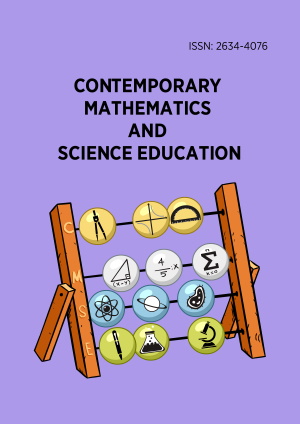Keyword: Nepal
2 results found.
Research Article
Contemporary Mathematics and Science Education, 3(2), July 2022, ep22014, https://doi.org/10.30935/conmaths/12225
Research Article
Contemporary Mathematics and Science Education, 2(2), July 2021, ep21010, https://doi.org/10.30935/conmaths/10944

 The articles published in this journal are licensed under the CC-BY Creative Commons Attribution International License.
The articles published in this journal are licensed under the CC-BY Creative Commons Attribution International License.